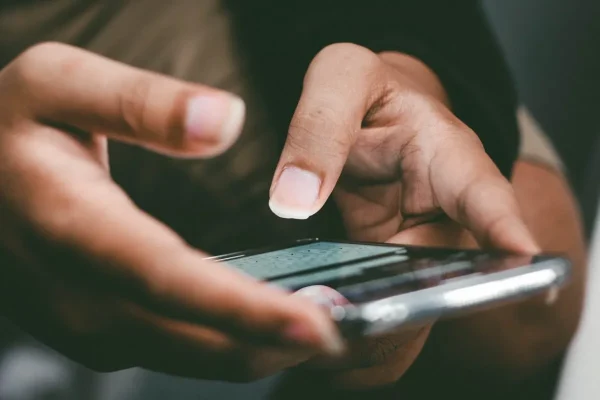It has been a rather superficial approach that this blog has taken to the concept of “gentlemen”. The focus has been on dress and appearance, but being a gentleman is of course about much more than how we look and how we dress. It is about showing integrity, being polite and helpful, listening attentively and acting with consideration for other people’s feelings and needs.
For me, it also means that a gentleman lives according to his own values. I try to live by empathy, kindness and justice – values that I believe contribute to both my own well-being and the well-being of others. And well-being is something that should characterize a true gentleman.
In the future, my blog posts will also be more about health – both physical and mental – and general well-being. In today's society, there are many things that directly affect our well-being negatively. I think that many people, when they feel a little worse, don't always really know why. Is it depression? Undiagnosed ADHD? Burnout?
During a period when I myself was feeling worse, I have been suspicious of all these factors. Maybe it is a mixture of all of them, or maybe it is much simpler than that. Maybe it is just that gadget that you are sitting here reading this blog post on right now? With that question we lead directly into the subject of this post – the mobile phone. Maybe the answer has always been right in front of my nose (literally), which is not so surprising considering how incredibly time-consuming it can be. I am talking about that damn mobile phone, of course.
The mobile phone..
The mobile. The little bastard in your pocket that you can't help but fiddle with every five seconds. It's important to be connected, and the more connected we become, the more disconnected we become from reality. News, notifications, memes, "important" work emails and other valuable notifications from apps you never use. Facebook, Messenger, Instagram, LinkedIn, Snapchat, Tiktok. Everything is designed to keep you glued, to constantly give your brain small doses of dopamine - the brain's own little reward drug. Years of collected user data, mainly from platforms like social media, have given rise to knowledge about how design can be shaped to capture and retain users through addictive methods.
Modern mobile phones, or rather the applications we use on our phones, are intentionally designed to hijack our brains' reward systems and make us addicted. I'll try to explain a little bit about how it works - and what you can do to take back control of it. your life (if it has gotten that far).
The brain's reward system
The brain's reward system is an ancient, evolutionary mechanism that ensures that we feel good when we do things that increase our chances of survival. Dopamine plays an important role in the reward system and is linked to feelings such as pleasure, motivation and reward. When dopamine is released, we are encouraged to repeat behaviors that are positive for our survival. Our brains love dopamine.
Rewarding activities such as eating good food or spending time with people we like release dopamine as part of the brain's reward system. Exercise, music, laughter and social interactions, expectations and surprises, challenges and achievements are also factors that stimulate dopamine release.
Other things that activate dopamine release can be sugar, alcohol, nicotine, gambling, cocaine… and mobile phonesYou might understand why all of this is very addictive.
How mobile leverages our reward systems
Cell phones are carefully designed to manipulate our brains and trigger the reward system to keep us engaged. Here are some of the techniques that will make you never want to put your device down:
- Push notifications: Every ping is like a little reward that lures you back to your phone, even if you're trying to focus on something else.
- Social media: Platforms like Instagram, Facebook, and TikTok know exactly what we like. The more we interact, the more tailored content we get – an endless stream of dopamine hits.
- Infinite scrolling: Without a clear ending point (like the end of a book), it's hard to stop – we're chasing the next interesting post.
- Gamification: Features like “streaks” on Snapchat or rewards in games turn usage into a competition against yourself.
All of these techniques together create a feedback loop: you use your phone → get a dopamine hit → feel like you need more → use your phone more → get even more dopamine hits → and so on. This cycle means that we often use our phones without really thinking about why we are doing it. Our brains get used to receiving small rewards in the form of likes, comments, notifications and tailored content, and we unconsciously seek out these rewards to experience pleasure and satisfaction.
All of this digital manipulation of the brain's reward system is scientifically proven. Studies show that intensive use of mobile phones activates the same brain regions as, for example, harmful substance abuse. Studies also indicate that children and teenagers are particularly vulnerable because their brains are still developing, making them more susceptible to addictive behaviors.
References: The Times, Psychiatry specialists
Short-term and long-term consequences
Mobile addiction affects us in both the short and long term, with consequences that can gradually erode our ability to function optimally. Here are some of the less charming side effects caused by excessive mobile use:
Concentration problems
- Short term: When your phone is constantly beeping and vibrating, it becomes difficult to focus on what you're doing. We jump from one thing to another, which quickly causes us to lose track.
- Long term: Over time, the brain becomes accustomed to these short, intense dopamine spikes. This can make normal, slower-paced activities (like reading a book, trying to listen to the teacher during a lecture, or watching a movie) boring and monotonous because they no longer provide the same immediate stimulation.
Increased Stress Levels
- Short term: The constant distractions of notifications and updates can instantly increase stress. The brain never really gets a chance to unwind.
- Long term: This constant stress can cause the brain to develop a form of dopamine tolerance. This can result in a very noticeable feeling of exhaustion where even everyday activities and situations feel overwhelming and tiring.
Social distancing
- Short term: We can be physically present but mentally absent. Even though we are among other people, we are glued to our phones. This means we miss out on the deeper connection with those around us.
- Long term: This divided attention risks deteriorating our relationships with other people. We can end up in situations where we are sitting together but still feel alone, as it eats away at genuine presence and interaction.
Impaired attention span
- Short term: It quickly becomes difficult to focus on a task for more than a few minutes. Our phones train us to quickly shift focus, which means we are constantly looking for the next quick dopamine rush.
- Long term: Over time, our ability to maintain focus and concentration for longer periods of time weakens. Tasks that require a little deeper thought and perseverance become increasingly difficult to complete, and we find ourselves constantly distracted.
In summary, the short-term reward we get from our phones, with their quick dopamine boosts, can quickly lead to long-term problems. Our brains, constantly searching for the next dopamine hit, risk becoming so accustomed to the constant stimulation that they lose the ability to handle the more nuanced, long-term challenges of life.
But it is possible to retrain the ability to pay attention.
Thankfully, the human body is amazing, with its ability to heal and adapt. The real challenge, I think, lies in self-reflection and self-awareness. It is possible to break free from bad habits and take back control of your life. Do you want to take back control? If you recognize the symptoms I have talked about in this blog, you can start by trying this::
- Turn off all unnecessary notifications on the phone – Your messages are not vital. I promise.
- Limit screen time – There are apps that Digital Wellbeing or Screen Time to limit mobile phone use.
- Phone-free zones in your home – Your phone doesn't have to be with you when you go to shit. It doesn't really have to be in the bedroom either. Start with small restrictions and increase gradually.
- Do something more important than scrolling – Aren't there more important things than all the crap that pops up in your Facebook feed? How much do you remember from what you scrolled through after you woke up this morning?
- Become aware of your behavior – The next time you pick up the phone, ask yourself: For what reason did I just pick up the phone?
You can also try a “digital detox.” A whole day without the damn phone. Turn off your phone and ask a loved one to take it for a day.
Take back control and don't let your phone control you
Mobile phones can simplify our lives in a fantastic way. They make it easy to stay in touch with loved ones and can give us security in emergency situations. But like everything else in the universe, they also have their direct opposite. They can complicate our lives, deteriorate our relationships and become a source of stress. The mobile phone is a powerful tool when we use it consciously, but the danger lies in the fact that we can easily become addicted – to the point that we don’t even notice when it starts to control us. With this post, I hope to give someone something to think about. Take care of yourself!





